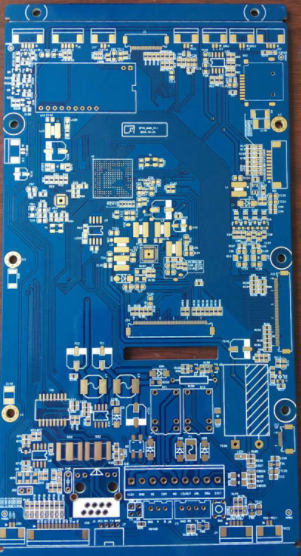For fiber channel card PCB copy board, fiber channel card circuit board copy board, fiber channel card circuit board copy board, the PCB factory should successfully complete a series of PCB copy board work with a professional PCB copy board team combined with accurate PCB copy software. (Including PCB drawing file production, schematic file production, BOM bill of materials production, on-board chip decryption, PCB proofing, IC component procurement, PCBA assembly welding and prototype debugging services.)
We know that network cards are used to connect computers and computer networks. The network card is generally inserted into the computer's large bus expansion slot, and the card has an interface to connect to the computer network. The network card is physically connected to the internal bus of the computer, such as PCI, PCI-X, PCI-E, SUN Sbus, etc., and the computer network, such as Ethernet. The storage system also has similar equipment used to connect the internal bus of the computer and the storage network. This kind of equipment located on the server and connected to the storage network is generally called a Host Bus Adaptor (Host Bus Adaptor) HBA. HBA is the physical connection between the I/O channel inside the server and the I/O channel of the storage system. The most commonly used internal I/O channels of a server are PCI and Sbus, which are communication protocols that connect the server CPU and peripheral devices. The I/O channel of the storage system is actually Fibre Channel. The role of HBA is to realize the conversion between the internal channel protocol PCI or Sbus and the Fibre Channel protocol.

The role of the Fibre Channel card:
Common data communication protocols between servers and storage devices are IDE, SCSI and Fibre Channel. In order to realize the communication between the server and the storage device, both ends of the communication need to implement the same communication protocol. Storage devices usually have controllers, which implement one or several communication protocols, which can convert storage protocols such as IDE, SCSI or Fibre Channel to the operating protocols of physical storage devices. The communication protocol of the server is realized by the integrated circuit on the expansion card or the motherboard, which is responsible for the conversion of the bus protocol in the server and the storage protocol such as IDE and SCSI. For example, in PCs, IDE protocol functions are generally available on motherboards, and IDE protocol functions are available on IDE disk controllers. Therefore, the IDE disk can be connected to the IDE connection line of the PC. If the disk only supports the SCSI protocol, then this kind of disk cannot be directly connected to the PC. At this time, you need to insert a SCSI card into the expansion slot of the PC, and the SCSI disk can be connected to the card. The SCSI card realizes the conversion from PC bus to SCSI. The function realized by this SCSI card is the function of the host bus adapter card. If the disk only supports the Fibre Channel protocol, then the server needs to support the Fibre Channel protocol, because the high-speed characteristics of Fibre Channel are generally not supported by server motherboards, and a dedicated host bus adapter card is required. After the server is inserted into the host bus adapter card, it can be connected to the disk that supports Fibre Channel through Fibre Channel.
Other functions and support agreements of the Fibre Channel card:
There is a small central processor inside the host bus adapter card, and some memory is used as a data buffer and connecting devices to connect the fiber channel and the bus. This small central processor is responsible for the conversion between PCI and Fibre Channel protocols. It also has some other functions, initializes the server port connected to the Fibre Channel network, supports upper-layer protocols such as TCP/IP, SCSI, etc., 8B/10B encoding and decoding, etc.
If there is a problem of fiber channel card PCB copy board, you can only provide one or two sets of fiber card prototypes or prototypes, and the PCB factory can help imitate countless fiber optic cards that are exactly the same as the prototypes or prototypes.